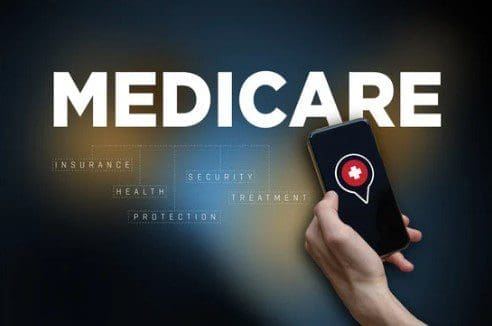
The ABC’s of MSP, QMB, SLMB and ALMB
March 1, 2023 is the date when the Medicare Savings Program (“MSP”) income thresholds are updated.
The figures are based on the federal poverty guidelines, which are adjusted every January based on inflation. Each State manages its own MSP standards.
In Connecticut, you are eligible for MSP if your gross income falls below 211-246% of the federal poverty guidelines.
It does not matter how much you have in assets, such as the value of your retirement accounts, savings, and real property. If your monthly gross income falls below the following limits, you can qualify for the Medicare Savings Program:
| Program | Married (combined gross monthly income maximum) | Single (gross monthly income maximum) |
| QMB | $3,468 | $2,564 |
| SLMB | $3,797 | $2,807 |
| ALMB | $4,043 | $2,989 |
So what is MSP?
MSP is a benefit program where the State pays a qualified recipient’s Medicare premium and, in some cases, co-pays and prescription costs. There are three levels of MSP: Qualified Medicare Beneficiary (“QMB”), Specified Low-Income Medicare Beneficiary (“SLMB”), and Additional Low-Income Medicare Beneficiary “(ALMB”).
If you qualify for any of the three programs (with the caveat that the ALMB program is only available if there is enough funding in the budget), the State will pay for your Medicare Part B premium, which is currently $164.90 for most people in 2023.
If you are not aware that you pay this, it may be because it is taken automatically from your social security payment each month, leaving the net amount to be directly deposited into your account. So for most people, this is not a bill that you pay yourself directly.
Related Post: Do You Have To Review Your Medicare Plan Every Year?
Each December social security recipients receive a letter from the Social Security Administration stating the gross monthly payment for the following year. This letter also shows the deductions from the gross monthly payment. Most include the monthly deduction for Medicare.
Some also include a voluntary deduction for income taxes. If you are unsure if you have Medicare premiums deducted from your monthly social security payment and you cannot find the letter that was mailed in December, you can access your Benefits Letter using the Social Security Administration website, www.ssa.gov.
Additionally, if you qualify for the QMB program, the State will also pay your deductibles, which is the amount that you pay for medical services before Medicare or any other insurance begins to pay, and your co-insurance or co-pays, which is the portion of Medicare-approved services that you are responsible for paying. (https://portal.ct.gov/DSS/Health-And-Home-Care/Medicare-Savings-Program/Medicare-Savings-Program/Eligibility).
Related Post: Medicare Advantage Plans: The Good, The Bad, And The Ugly
How Do You Qualify For The Medicare Savings Program in 2023?
If you believe that your gross income falls below the thresholds mentioned and are not already on the program, applying is fairly simple.
This link brings you to the State website that explains the process and you can click here to access the APPLICATION. You can apply at any time and the turnaround time for approval is relatively fast.
If you need assistance with the application or have questions, your personal Medicare agent should be able to help. If you need a referral to a Medicare agent, please send an email to info@reedwilsoncase.com with the Subject line “Need a Medicare Referral” and we can provide you with the name of a trusted professional near you.
Disclaimer: The information provided in this article does not, and is not intended to, constitute legal advice and is for general informational purposes only.
Let Us Know How We Can Help!
Please fill in your contact information and a brief message about what you need help with. A consultation will need to be scheduled in order to provide legal guidance.
Joan Reed Wilson Esq. – Managing Partner
Practices in the areas of estate planning, elder law, Medicaid planning, conservatorships, probate and trust administration, and real estate. Admitted to practice in the States of Connecticut and California, she is the former President of the CT Chapter of the National Academy of Elder Law Attorneys (NAELA), an active member of the Elder Law Section of the Connecticut Bar Association, accredited with the PLAN of CT for Pooled Trusts, with the Veteran’s Administration to assist clients with obtaining Aid & Attendance benefits for long-term care needs and with the Agency on Aging’s CareLink Network.







